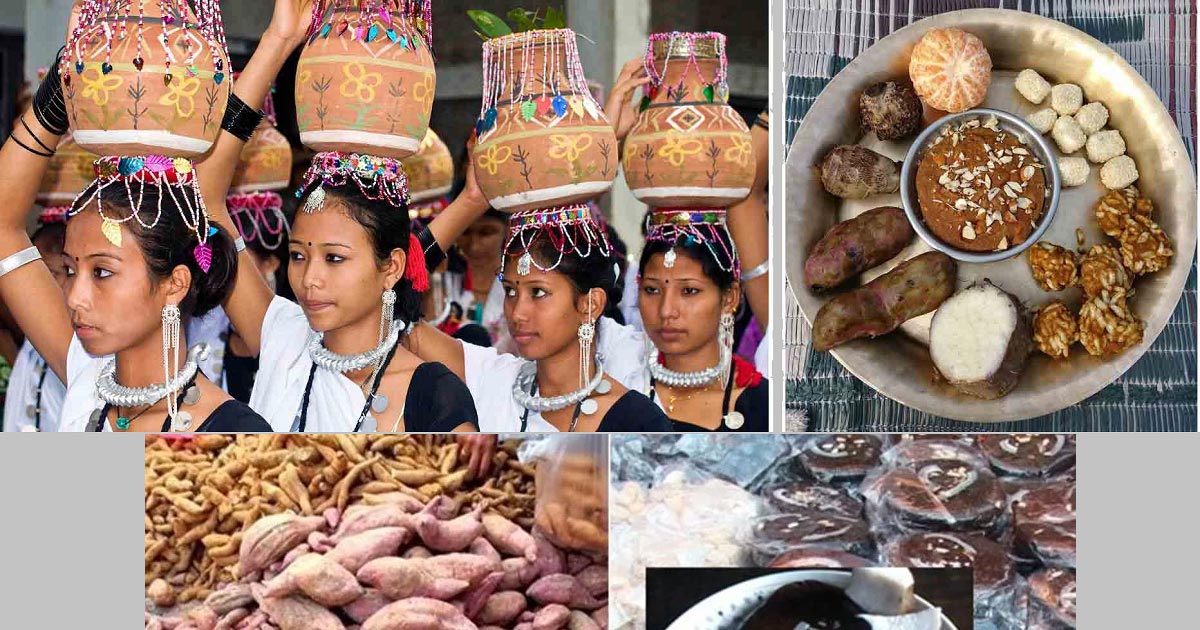
Maghe Sankranti Festival: A Cultural and Social Celebration
Maghe Sankranti and Maghi, major festivals in Nepal, resonate with cultural richness and communal harmony. Celebrated with traditional fervor, these festivals symbolize renewal, unity, and spiritual devotion. Maghe Sankranti, marked by sacred river baths, charity, and the enjoyment of winter foods like ghee, yam, and khichdi, embodies the essence of cultural heritage and religious beliefs. The Maghi festival, significant to the Tharu community, represents their New Year, showcasing vibrant dances and cultural attire. It's a time for reinforcing social bonds, electing village leaders, and embracing communal decision-making, reflecting the community's deep-rooted democratic values. These festivals not only preserve traditional customs but also strengthen familial and societal ties, playing a vital role in the socio-cultural tapestry of Nepal. Their celebration is a testament to the enduring spirit and cultural diversity of the Nepalese people, offering a unique glimpse into their rich heritage and communal ethos.
Celebration Overview
- Maghe Sankranti, a vibrant festival, is celebrated with great enthusiasm, featuring traditional rituals like bathing in holy rivers, chanting, meditation, and charity.
- Key elements of the festival include the consumption of winter-warming dishes like ghee, yam, and khichdi, especially after bathing in sacred rivers like Triveni.
- Sesame seed donations post-bathing are believed to be as meritorious as gold donations, reflecting the festival's deep religious roots.
Government Recognition and Public Holiday
- The festival's significance is acknowledged with a public holiday, allowing widespread participation and celebration.
Maghi Festival: A Tharu Community's New Year
- The Tharu community, predominantly in Nepal's western Terai region, celebrates Maghi as their New Year.
- Traditional dances like Maghauta and Sikhiya, showcasing the Tharu culture, are highlights.
- Maghi's 2024 celebration was subdued due to the ongoing Corona epidemic, impacting traditional festivities.
Leadership and Community Development
- An integral part of Maghi is the democratic election of village leaders, fostering community involvement and development.
- The Tharu community emphasizes collective decision-making and social responsibility.
Cultural Practices and Social Bonds
- Maghi fosters familial and social bonds, exemplified by the 'Nisrau' tradition, where gifts of essential food items strengthen sibling relationships.
- The festival marks the start of a new financial and agricultural year, symbolizing renewal and progress.
Deepening Community Relationships
- Post-bathing rituals during Maghi strengthen communal ties, with elders and youngsters participating in blessings and unity ceremonies.
Social Integration and Community Support
- The Tharu community's social structure emphasizes collective growth and mutual support, integral to their social and cultural identity.
Collective Decision-Making and Cultural Preservation
- Maghi is a testament to the Tharu's collective spirit, evident in their communal leadership selection and cultural preservation efforts.
- Traditional dances and songs during Maghi reinforce communal harmony and cultural heritage.
Significance in the Modern Era
- Maghi's role in preserving Tharu art and culture is crucial, especially in the face of modern challenges.
- The festival's international appeal enhances the Tharu community's global recognition.
Reflection of National Structure
- The Tharu community's governance model, mirroring national structures, showcases their long-standing political and social organization.
Inclusive Leadership and Cultural Richness
- Maghi's democratic leadership selection, inclusive of all community members, reflects the Tharu's progressive and rich cultural ethos.
- Maghe Sankranti and Maghi are not just festive occasions; they symbolize the Tharu community's social, cultural, political, and religious dimensions, fostering unity and societal harmony.
In conclusion, Maghe Sankranti and Maghi stand as beacons of Nepal's rich cultural heritage and the enduring spirit of its people. These festivals transcend mere celebrations, embedding themselves as vital components of Nepalese society. They foster a sense of unity, reflect deep-seated traditions, and highlight the importance of community and familial bonds. Through the ritualistic baths, the warmth of traditional foods, and the vibrant dances, these festivals not only preserve the past but also pave the way for future generations to understand and cherish their roots. The democratic process of leadership selection during Maghi especially underscores the community's commitment to collective progress and social responsibility. In essence, Maghe Sankranti and Maghi are not just annual events; they are a living testament to the resilience, joy, and communal harmony that define Nepal, making a significant impact on both national identity and international cultural understanding.
Festival



